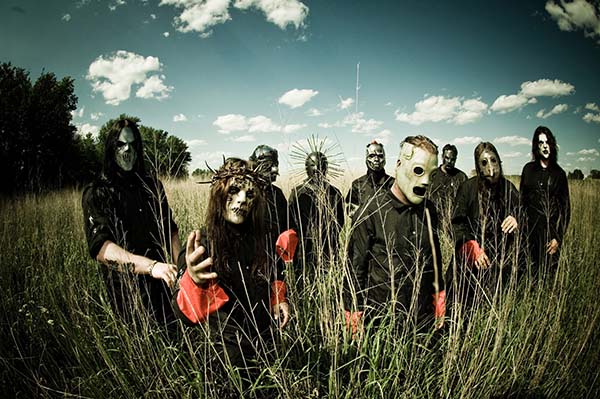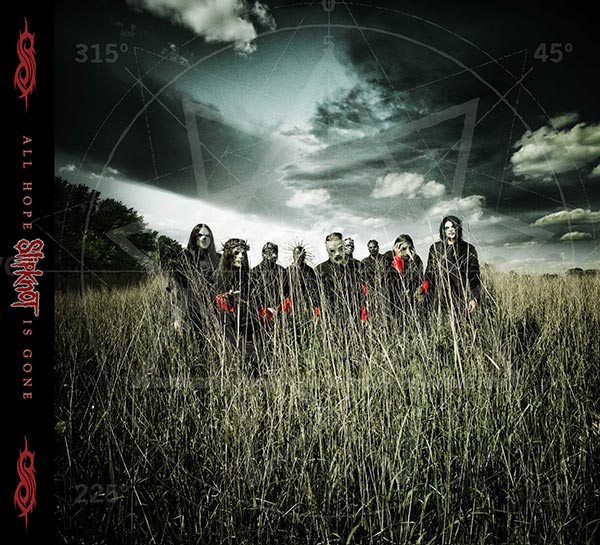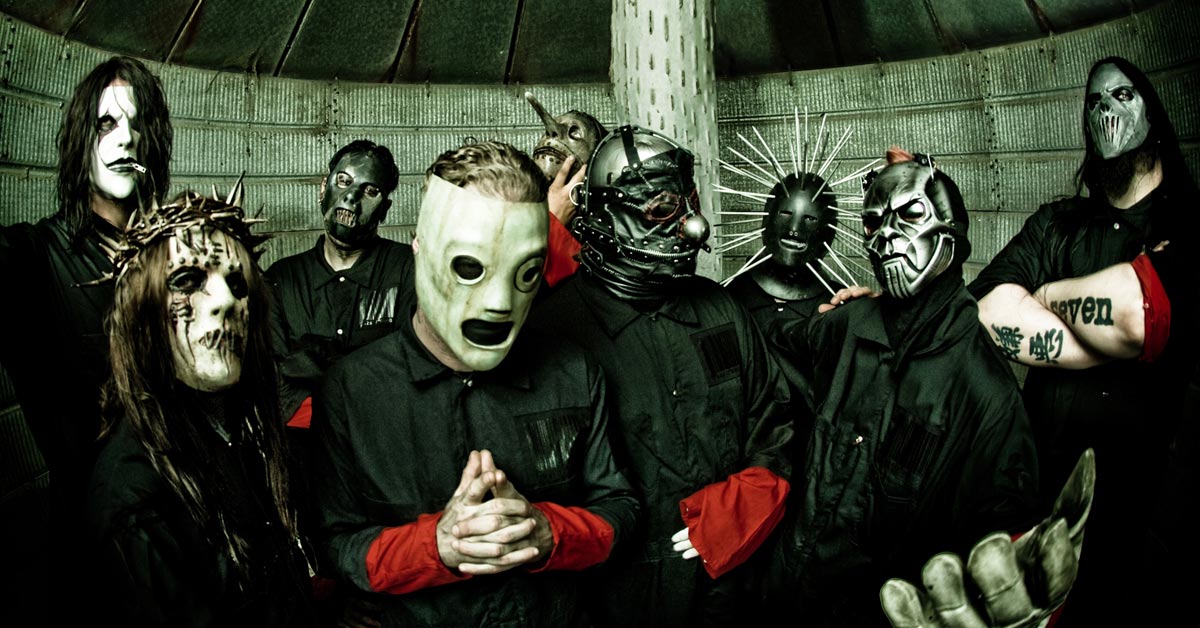
Slipknot’s All Hope Is Gone turns 10 years old this week and in honour of this milestone we’re taking a look back at the album that catapulted the band to the very pinnacle of the heavy metal mountain, and reflecting on what lead to its creation.
Of course, Slipknot was already one of metal’s heavy hitters by the time 2008 rolled around, having released three monstrous albums in the ten years prior. They were fast becoming a household name, hurtling toward total world domination.
At the turn of the millennium, we first heard the name and were exposed to the insanity of nine faceless psychopaths hailing from deep within the American Corn Belt, with the release of their brutal self-titled major label debut. The increasing mystique, intrigue and fear surrounding the band resulted in their sophomore effort Iowa in the winter of 2001.
It is these two records which stand as our introduction to the juggernaut, but it would not define them, or what they would become. Worldwide success and infamy would be overshadowed by years of torment, addiction, conflict, suffering and loss, and it would only be the beginning of the story for Slipknot, whose members would pay a hefty price for their newfound fame.
In 2004, the band unleashed their third long player Vol. 3: The Subliminal Verses to widespread critical acclaim, even picking up a Grammy Award for Best Metal Performance for the blistering track Before I Forget. Slipknot’s commercial appeal only increased as the album debuted at number 2 on the US Billboard Charts and achieved platinum sales in the United States, Canada and Australia, while maggots around the globe lined up for hours to catch a show when the band came to town.

It seemed an unstoppable freight train, but it would be four long years before the relentlessness would return in the form of new music. Infighting, artistic differences and substance abuse all became obstacles for the band to overcome, but in 2008 Slipknot announced their fourth and most adventurous album to date, finally arriving in the form of the bleakly titled All Hope Is Gone.
The writing process for the record began in 2007 with long-time (and now ex) drummer Joey Jordison, together with late bassist Paul Gray combining to champion the initial structuring of the songs, while guitarists Jim Root and Mick Thomson churned out the accompanying riffs, and Corey Taylor worked on lyrics whilst on the road with his first band Stone Sour.
The album had begun to take shape and as the turmoil began to fade, a set of songs would evolve, exposing a twisted manifest of past, present and future, and a band looking towards rebirth, rather than a continuation down the path towards inevitable self-destruction.
Interestingly, the album debuted at #2 on the US Billboard chart, losing out to Los Angeles rapper The Game’s LAX by an agonisingly close 13 units. After the band’s label and management demanded a recount, it was determined All Hope Is Gone had, in fact, sold a thousand more copies than its competition and as a result, Slipknot were awarded line honours and had their first number one album.

This isn’t your classic Slipknot record. Sonically, it’s heavy and there’s no mistaking the sound, but there is a cathartic, emotional energy about it which revealed a new, more engaged side to the band than what we had become accustomed to during the course of the previous decade. The melodies are moody, dark and progressive and seethe with vitriol, while the overall message revolves around acceptance and resurrection. It’s an interesting dynamic, and it evokes some serious emotion.
The album’s songs blend beautifully the many elements of its predecessors, all the while inviting us to experience something different. The sporadic intensity of the debut, the malevolence of Iowa and the accessibility of Volume 3 are all felt throughout, but it’s in their ambitiousness that we truly discover the album’s identity.
While the songs do hold significant value on their own (I mean that – the majority are incredibly well-crafted pieces that deserve your time), the great weakness of All Hope is Gone lies in its continuity as a whole. It doesn’t flow quite like you would hope, with certain parts feeling out of place (looking at you Gehenna) in the overall genetic makeup of the album. This comes down to over-production for the most part, but it isn’t a reason to cast it aside entirely, even if you do feel as though you’re listening to a Stone Sour album.
Slipknot’s knack for writing catchy, nu-thrash anthems isn’t lost, but at times it’s hard to believe that this is the same band who once screamed at us that they wanted to “slit [our] throats and fuck the wound”. Some of the deeper cuts from the album are drenched in 90s-era sludge rock, and wouldn’t necessarily be out of place on an Alice in Chains record. It’s not altogether a bad thing, and it proves Slipknot was always willing to think outside the square, but it’s a noticeable shift nonetheless.
While the record is still abominably heavy, expecting songs like Disasterpiece is probably a costly error. Accepting the change in trajectory may be slightly harder for you as a result, but if you’re willing to adjust and absorb artistic growth, then it is quite the table turner.
Such is the nature of this beast, that we have learned to expect the unexpected and there is always something to be found which will surprise you within the band’s catalogue. It’s a mixed bag, to say the least but as the years have gone by the world hasn’t forgotten about them. They remain at the forefront of the heavy music revolution and it is thanks largely to their ever-evolving character, and All Hope Is Gone stands out as their bravest – and most polarising – endeavour yet.
Sadly, the album would stand as the final work of founding bass player Paul Gray who tragically passed away just two years later at the age of 38, and Slipknot’s greatest challenge no longer lay within the music they made, but in dealing with the grief they felt at the loss of their friend and bandmate. Slipknot would never be the same and many (the band included) questioned whether they would continue.
Ultimately, the train rolled on and the story of the Nine continues to engage, encapsulate and excite. For the millions of diehard fans around the world who have grown up listening to them there will never be another band quite as formidable as Slipknot, nor another album as divisive as All Hope is Gone.
Listen to Slipknot now











